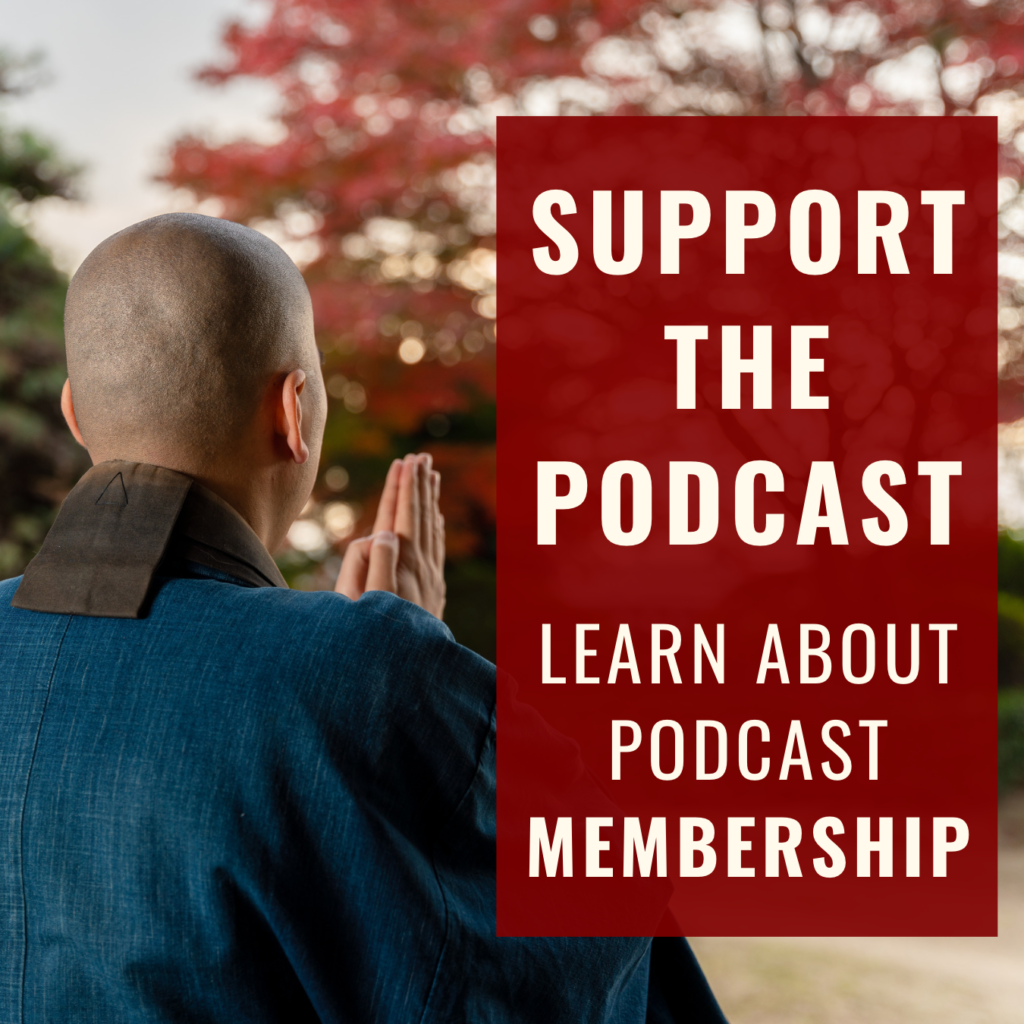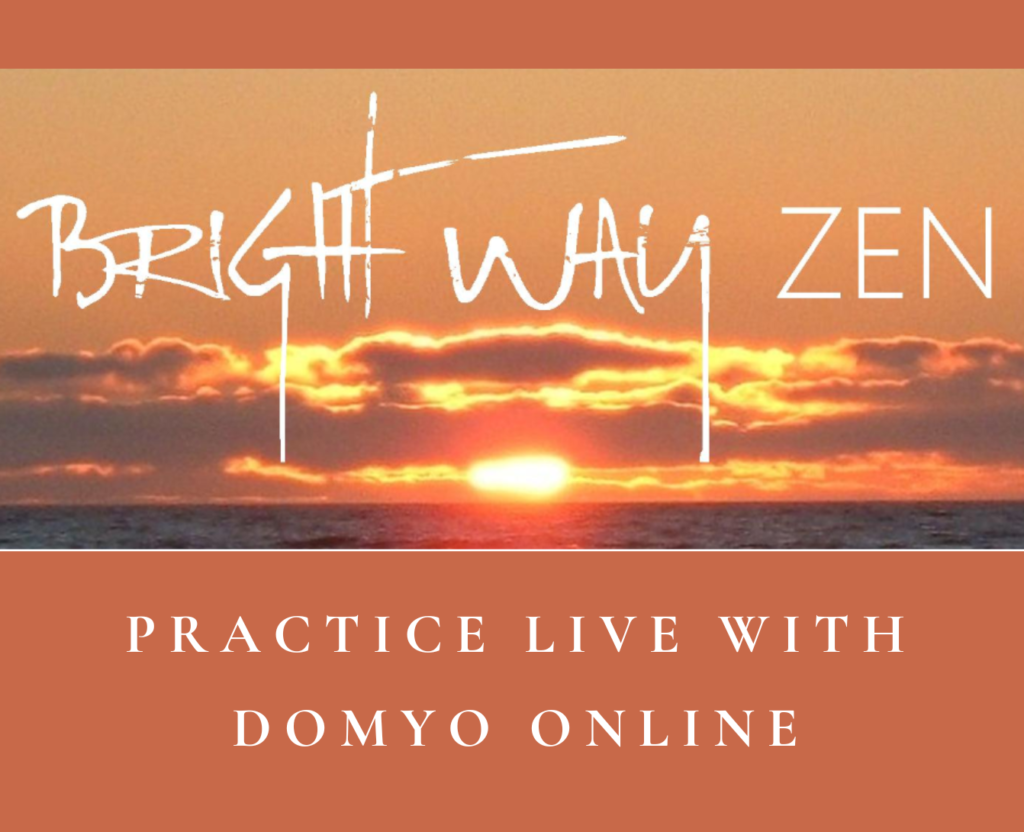
by Domyo | Feb 15, 2021 | Buddhist Practice, Buddhist Teachings
Parinirvana, the death of the Buddha Shakyamuni, is commemorated by a ceremony in mid-February in most Buddhist communities throughout the world. The Buddha gave several important teachings right before his death, and there is teaching contained in the very manner and fact of his passing. In this episode I describe the Parinirvana (Nehan) ceremony in my lineage and discuss what we can learn from it.

by Domyo | Jan 15, 2021 | Buddhism Today, Buddhist Teachings
Recent events show how deep a divide has developed within the United States. Those guilty of crimes need to be held accountable, but how do we repair the social fabric of our nation? It may help to renew cultural respect for the value of decorum: Dignified behavior according to social standards for what demonstrates a basic respect for one another’s humanity and acknowledges our mutual dependence. I discuss the teachings on decorum in Buddhism, and how critical it is to social harmony.

by Domyo | Jan 1, 2021 | Buddhist Practice, Buddhist Teachings
Dissatisfaction can lead to Bodhicitta. Bodhicitta is a Buddhist term literally meaning “awakened mind” that can translated as “the mind that seeks the way.” It’s the part of us which aspires to free ourselves and others from suffering – arising, ironically, from dissatisfaction. We think, “There must be a better way,” or, “There must be more to life than this.” Then we arouse the determination to find out, and this propels us down the path of practice. Therefore, it is critically important for you be dissatisfied with your life.

by Domyo | Nov 18, 2020 | Buddhist Practice, Buddhist Teachings
Kshanti is the Buddhist perfection (paramita) of endurance. Practice can relieve suffering, but it takes work; it isn’t a magic pill that brings instant peace and bliss. An essential part of our practice is learning how to endure – but not in a passive way, but in a determined refusal to be beaten down, defeated, deflated, or stopped in our efforts to relieve suffering for self and other and bring about a better world.

by Domyo | Nov 10, 2020 | Buddhist Teachings, Buddhist Texts
The Lost Son parable of the Lotus Sutra perfectly conveys the difference between hinayana and Mahayana practice. Despite what we may think of ourselves, we already have everything we need – including the capacity for great liberation and service. At the same time, we need to practice in order to grow into our inheritance.

by Domyo | Oct 26, 2020 | Buddhist Teachings
The emptiness of self is a Zen teaching that may seem rather abstract and philosophical, or even kind of nihilistic, depressing, or disorienting. Why does this matter? In brief, knowing the true nature of our self is what liberates us from fear and suffering.

by Domyo | Oct 8, 2020 | Buddhism Today, Buddhist Teachings
Understanding people’s actions can be difficult. Sometimes we can’t help but feel disbelief, judgment, or disgust toward people based on how they respond to the suffering of others – particularly regarding the problems we’re facing as a society such as the climate and ecological emergency, the serious undermining of democracy, continued racial injustice, an ever-widening gap between the haves and the have-nots. The Buddhist teaching about the Six Realms of existence can help us understand people’s mind states and motivations, hopefully leading us to greater patience, less judgment, and – most importantly – insight into what might work best to get through to people and help them change.

by Domyo | Sep 11, 2020 | Buddhist Practice, Buddhist Teachings
Buddhism, as well as many other religions, teach that we should treat each and every human being with respect, regardless of their behavior or off-putting manifestation. What does this really mean? Sometimes people are hateful, manipulative, cruel, selfish, irresponsible, or downright violent and destructive. Surely, in being asked to respect such people, we’re not being asked to ignore or condone their behavior, so how does respect for them actually look? And why is it important to cultivate this unconditional respect?

by Domyo | Aug 26, 2020 | Buddhist Practice, Buddhist Teachings
Buddhism teaches that no matter what happens to us, we always have some degree of choice about how we respond, and what we do next. At those critical, precious moments when your perspective widens and you become more aware of yourself, you can act in accordance with your aspiration to relieve suffering for self and other. This is what practice is: Taking advantage of our moments of choice, which arise countless times throughout the day and night, never losing faith that each of those little choices matter.

by Domyo | Aug 12, 2020 | Buddhist Teachings, Buddhist Texts
The Parable of the Burning House is one of five main parables of the Lotus Sutra, a classic Mahayana Buddhist text. I go through the parable paragraph by paragraph, stopping to reflect on each part of the story along the way and encouraging you to imagine yourself within the story as if it were a dream. I finish up by discussing the relevance of this teaching for our everyday lives and practice.

















